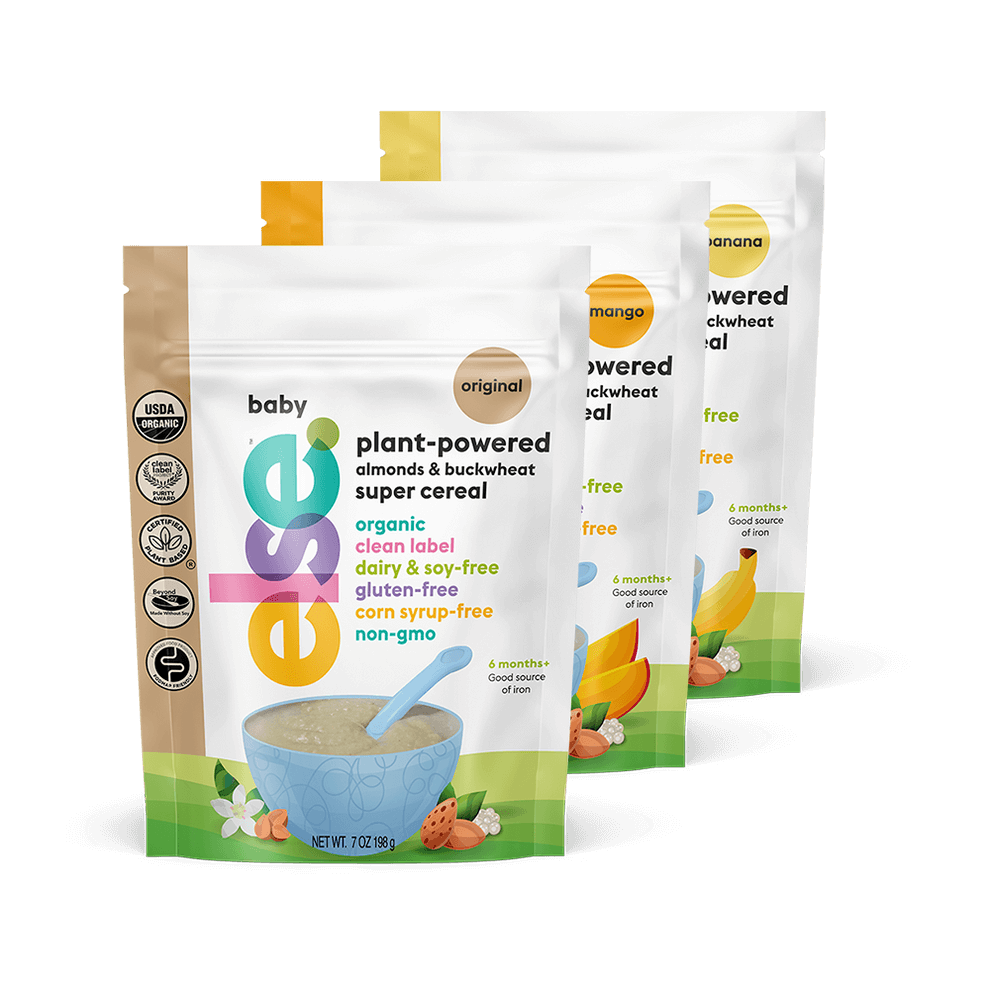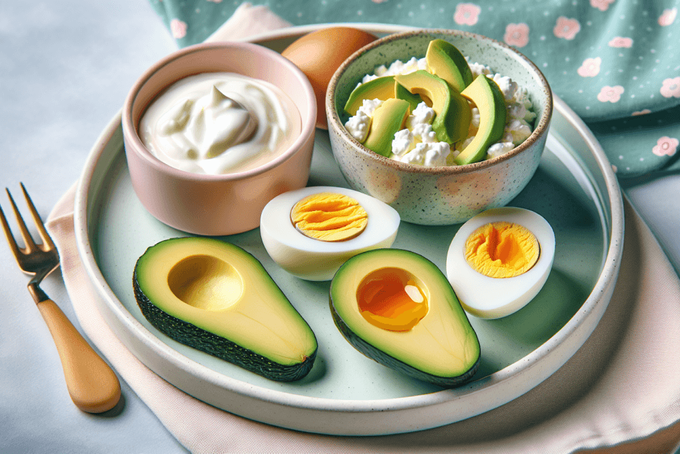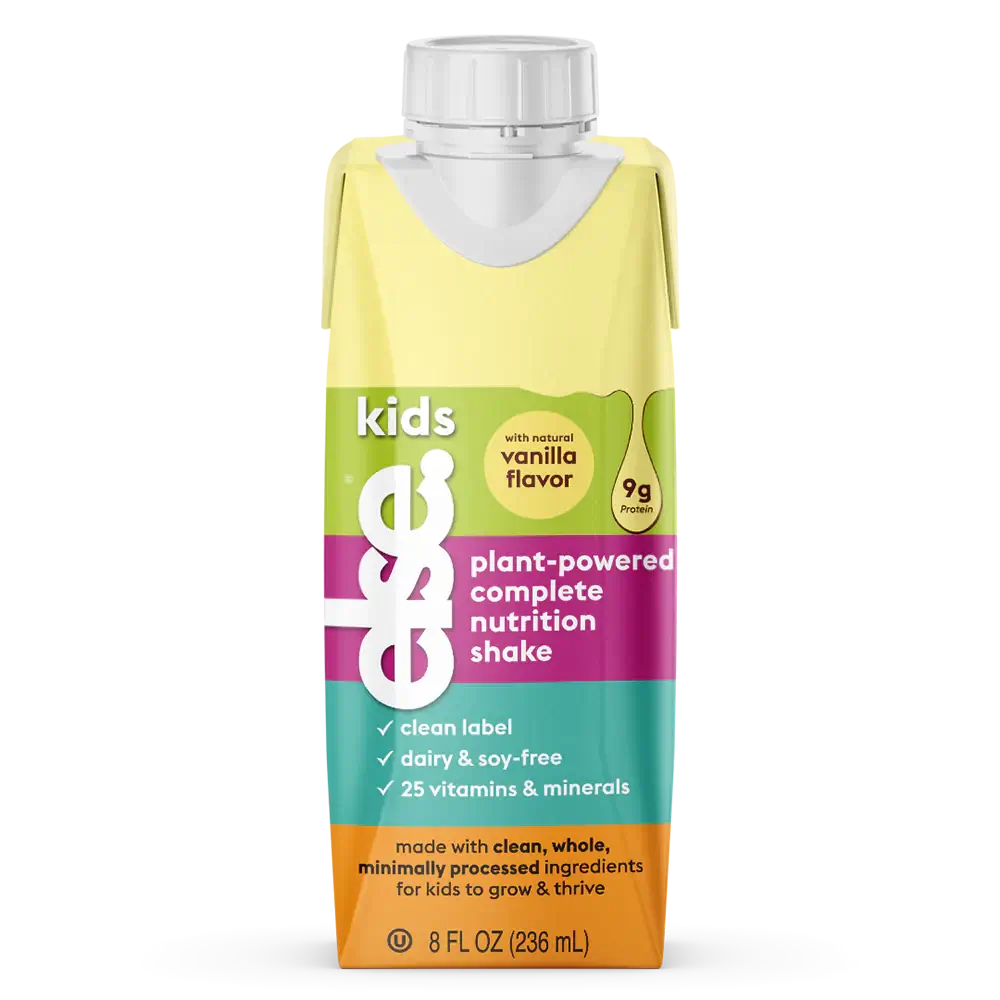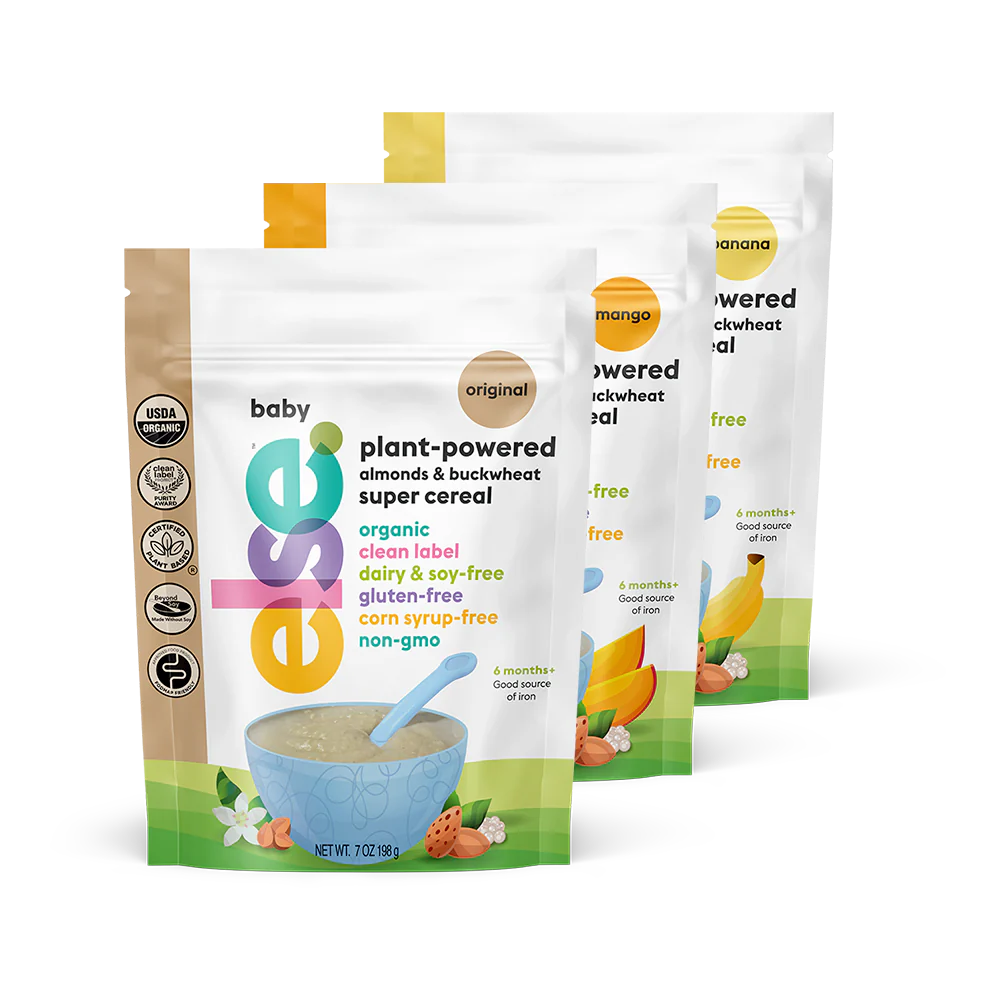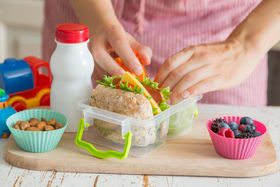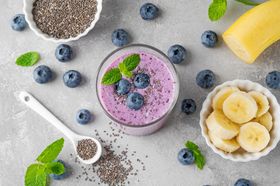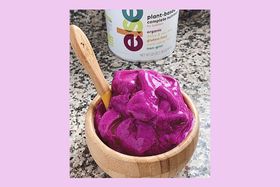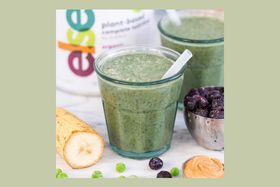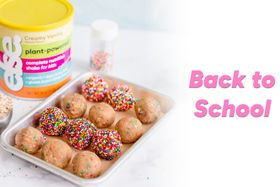Top Snacks for 10 Month Olds: Quick & Nutritious Bites
Discover the top nutritious and easy-to-prepare snacks for your 10-month-old, designed to meet your baby's developmental and dietary needs
Published June 9, 2024
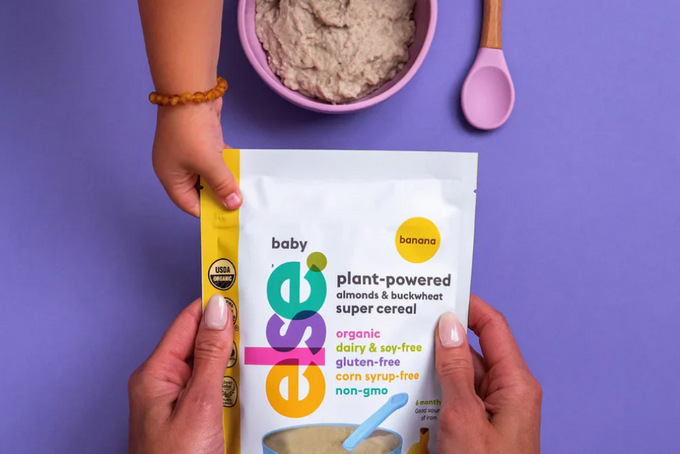
Searching for ‘snacks 10 month old’? You’re likely looking for quick-to-prepare, healthy, and developmentally suitable options. This concise guide delivers just that, with snack ideas designed for your 10-month-old’s nutritional needs, chewing abilities, and taste exploration, without adding stress to your busy day.
Key Takeaways
Infants at 10 months need a diverse diet rich in proteins, veggies, fruits, and grains, totaling 750-900 daily calories, with quinoa being an ideal nutrient-rich option.
Encourage fine motor skills and self-feeding with soft finger foods like banana segments and mild cheddar, and offer protein-packed snacks such as eggs and tofu to support growth.
Keep snacks simple and portable, with fresh fruits, vegetable spears, homemade muffins, and store-bought cereals like our whole food-based Else Nutrition Super Cereals.
Snacking for 10-Month-Olds
Snacking isn’t just about keeping little tummies satisfied. It’s about providing the nutrients they need to fuel their play, exploration, and learning activities through healthy snacking.
Between 9-12 months, babies start to explore a variety of food groups like fruits, vegetables, grains, protein, and dairy, adding diversity and nutrition to their diet.
Nutritional Needs
Keep in mind, a 10-month-old baby requires 750 to 900 calories daily. A significant portion of these should come from:
Proteins
Vegetables
Fruits
Grains
This is quite a nutritional load for a small tummy!
Quinoa, enriched with essential amino acids, folate, and iron, serves as an optimal choice to fulfill these requirements.
» For more tips check out our guide for parents on complete nutrition for your baby
Developmental Milestones
At this stage, babies are fine-tuning their pincer grasp, picking up small pieces of food between their thumb and forefinger. To support this, we can offer them coarser and chunkier food textures, along with soft finger foods.
Easy-to-Prepare Snacks
Finger Foods
Finger foods are a great way to encourage self-feeding. Some soft and safe early finger foods include:
Fresh raspberries broken into smaller pieces
Banana segments
Mild cheeses like cheddar served in strips or cubes
Unsweetened whole-grain cold cereals, like oat o’s, to introduce new tastes and textures.
Soft Bites
Given that babies at this age are honing their chewing skills, soft bite-sized baby snacks make a perfect choice. Tofu, for instance, is an excellent soft snack that provides essential protein and calcium for dental and gum health.
And don’t forget about homemade Sweet Potato Teething Biscuits – a soft snack option that’s easy for teething infants to chew.
Fruits and Veggies
Never underestimate the power of colorful fruits and vibrant vegetables to enliven your baby’s snack time! Fruits, brimming with vital nutrients and natural sweetness, can be a baby’s favorite food.
And vegetables? They can be turned into fun snacks by serving them in spears or strips with dips, helping to reduce food waste.
Fresh Fruit Options
The variety and deliciousness of fresh fruits offer endless possibilities. Some soft fruits that are safe for babies to eat include:
Bananas
Apples
Pears
Peaches
Oranges
Avocados
Berries
These fruits can be served in long strips or "pea-sized" pieces. And if you’re on the move, pre-cut watermelon and apples are convenient travel snacks.
Veggie Choices
Veggies are not to be outdone. Here are some great options for a healthy snack that is both satisfying and nutritious:
Carrots
String beans
Sugar snap peas
Peppers
Zucchini
Green beans
Broccoli
Cauliflower
These vegetables, including green peas and steamed carrot sticks, offer a variety of flavors and textures to enjoy. They can be steamed or boiled until soft and served in pieces suitable for a baby’s age and chewing ability.
Moreover, broccoli serves as a nutrient-dense snack for babies, brimming with crucial vitamins, minerals, and antioxidants
» Discover more about the best vegetables for your child and how to prepare them effortlessly
Preparing food for your little one shouldn’t always turn your kitchen into a culinary warzone. Simple recipes like scrambled eggs, roasted sweet potatoes, and oatmeal can serve as quick, healthy snacks for your little one. A time-saving trick is to make these in bulk and freeze portions, ensuring healthy snacks are always readily available.Never underestimate the power of colorful fruits and vibrant vegetables to enliven your baby’s snack time! Fruits, brimming with vital nutrients and natural sweetness, can be a baby’s favorite food.
Protein-Packed Snacks
Protein plays a fundamental role in your baby’s diet, fostering growth and development. Incorporating a portion of protein during snack time can contribute to your baby’s satiety.
Protein-rich foods such as eggs, cottage cheese, Greek yogurt, plain yogurt, and avocado are great options.
» Discover more about the protein needs of your baby
Plant-Based Protein
Plant-based diets can provide all the necessary amino acids for your baby. Foods like beans, pulses, nut butters, oats, and quinoa are excellent sources of plant-based protein.
Also, for babies on plant-based diets, consider serving steamed tofu and lentils, both rich in nutrients and infant-friendly.
» Why go plant-based? Take a look at why plant-based toddler nutrition is so healthy
Animal Protein
For those who include animal products in their diets, proteins like:
Chicken
Eggs
Ground beef
Turkey
Finger foods can provide essential nutrients for growth, and for infants, breast milk is the primary source of nutrition before introducing solid food. Ground meats like beef and turkey can be lightly mashed into small portions to serve as suitable finger foods or mini meals for infants.
Eggs can also be scrambled, pureed, or made into an omelet that is then cut up for older infants to eat.
Whole Grain Goodness
Foods like soft whole grain crackers, homemade muffins, and shredded cheese are not only nutritious but also delicious, making them perfect for healthy eating.
Whole Grain Crackers
Whole grain crackers are a nutritious snack choice, especially once your baby has been eating iron-rich foods consistently. Opt for unsalted and mild-flavored varieties to avoid high sodium and strong flavors.
The convenience of whole grain crackers, as a type of healthy baby snack, makes them a valuable addition to your baby’s snack regime.
Homemade Muffins
The allure of homemade muffins shouldn’t be overlooked! Baked with whole wheat flour and oats, these little delights offer a wholesome foundation and nutritional balance, especially when natural sweeteners like applesauce are used instead of added sugars.
They can also be conveniently stored for easy snacking throughout the week, just like canned beans.
Incorporating whole grains into your baby’s diet offers an array of essential vitamins, minerals, and fiber.
On-the-Go Snacks
Knowing that parents are frequently on the go, convenient snack options can indeed simplify life. Store-bought snacks and small, leak-proof containers are your best friends when it comes to mobile munching.
Store-Bought Options
Although store-bought snacks provide convenience, evaluating their nutritional content and ingredient list remains critical. Avoid options with added sugars or unhealthy fillers, and choose snacks that are nutritious and beneficial for your baby.
Else Nutrition Super Cereals for Babies: A Wholesome Snack for 10-month-olds.
Our award-winning Else Nutrition Super Cereals make a wholesome snack option worth considering. Formulated to be safe from heavy metals and other contaminants, this baby cereal is a safe and nutritious choice for your growing child. It's made of real, whole foods, minimally processed, for maximum nutrition.
DIY Travel-Friendly Snacks
For those who love a good DIY project, here are some easy and portable snack ideas:
Homemade spinach pancakes
Whole grain bread with fruit puree
Frozen yogurt-covered blueberries
Peanut butter sandwiches with fruit
Hard-boiled eggs
These snacks are ideal for travel and can be prepared in advance.
» Looking for more ideas? Check out our 6 dairy-free toddler snack recipes!
Portion Sizes and Snack Timing
During your baby’s snack time planning, ensure to:
Maintain small portion sizes
Arrange snacks at least 2 hours prior to meals
Initially, start with one snack per day for a 10-month-old, moving to 2-3 snacks as appropriate for your child’s appetite
Always respond to your baby’s hunger cues when serving food
Allergies and Intolerances
While introducing new foods to your baby, stay alert for possible allergies and intolerances. Remember, allergies involve the immune system and can have serious consequences, so it’s important to recognize the symptoms and consult a medical professional if an allergic reaction occurs.
» Stay vigilant when introducing new foods to your baby. Learn how to safely introduce allergens
Summary
In conclusion, snacking for 10-month-olds is not just about filling them up. It’s about providing essential nutrients, supporting their development, and introducing them to a variety of flavors and textures. From homemade muffins to store-bought snacks, there are plenty of options to ensure your little one is getting the nutrition they need. So, embrace this exciting stage of exploration and enjoy the journey of healthy snacking with your baby!
Frequently Asked Questions
Should 10 month old have snacks?
Yes, it's okay for a 10-month-old to have snacks such as sliced fruits, cheese, yogurt, or toast. You can include three main meals and two snacks between those meals each day for their feeding schedule.
What are good snacks for babies?
Some good snacks for babies include puffs, teething biscuits, soft fruit, and cooked vegetables. It's important to choose foods that are easy for them to handle and are cut into small, safe pieces.
What foods are appropriate for a 10 month old?
Your 10-month-old can eat cut-up, cooked vegetables and soft fruits, small pieces of tender meat, poultry, and fish, as well as mashed cooked beans and lentils. You can also consider offering small pieces of tofu or cheese, diced fruit, cooked peas, and well-cooked pasta. Just be patient with their slow pace and messiness as they're still learning.
What are some good sources of protein for a 10-month-old?
Eggs, cottage cheese, Greek yogurt, and avocado are excellent protein sources for your 10-month-old!
What should I consider when choosing store-bought snacks for my baby?
When choosing store-bought snacks for your baby, prioritize assessing the nutritional content and ingredients list. Aim to avoid options with added sugars or unhealthy fillers, and opt for nutritious and beneficial snacks instead.




